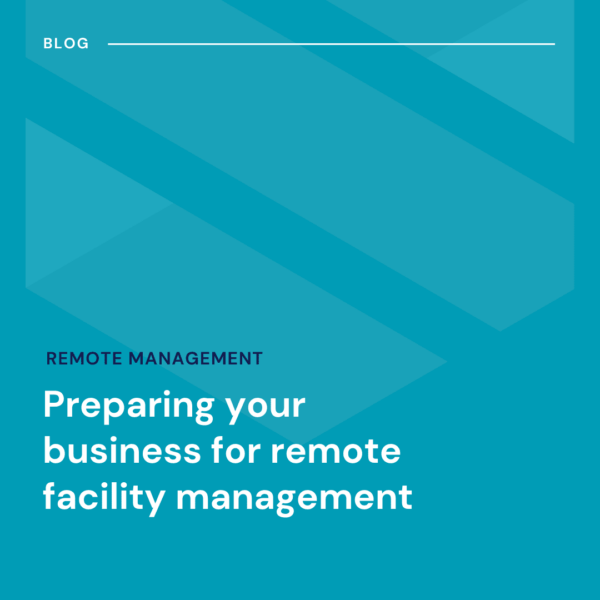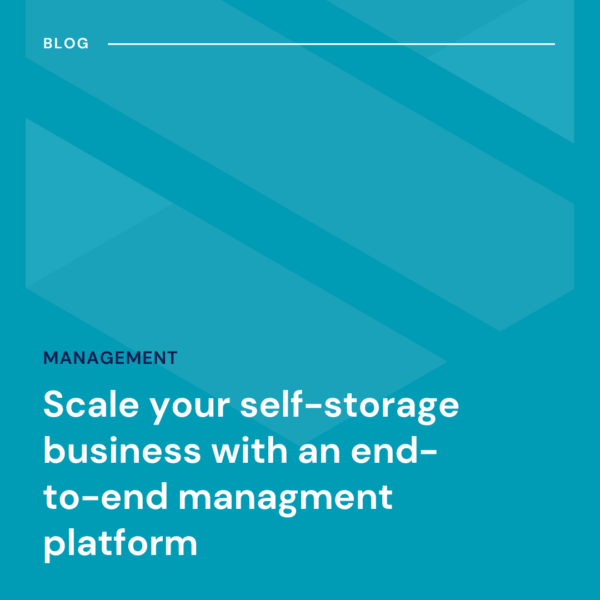
With the leasing season kicking off with record-high occupancy and record–high rental rates, the self-storage industry appears to be stronger than ever.
But what happens when the pandemic-fueled demand starts to wane and rising interest rates potentially lead to a rise in unemployment?
What if a recession causes consumers to pull back on everything to save money?
Many customers, paying hundreds of dollars a month to store excess items, might decide that is a luxury they can no longer afford.
Firing up the marketing engine
It may seem unthinkable at the moment, but what should you do if you start losing more tenants than you attract?
Fundamentals in the market have been so strong recently that you may not have had to think about marketing that much. But in a downturn, that will change.
If a market correction takes place, that’s the time to fire up your marketing engine. So, spend time building it now so that you are ready to respond quickly to any changes in the economy.
To help you prepare for what may come next, consider how your operation is making use of the following marketing tools and strategies. Stepping up and using these online and offline self-storage marketing tips will enable you to generate demand and remain competitive with the most sophisticated operators.
Digital self-storage marketing tips for operators
In the last few years, we’ve seen a sudden shift to consumers looking for storage online. This means online marketing for self-storage is more important than ever. Concentrate on the following areas to get the most out of your marketing efforts:
Storage facility website
Having a facility website is just as important as a physical rental office, and the first thing needed for self-storage marketing. It’s your online storefront and customers should be able to do everything there that they can do in person. This includes reserving a unit, signing a lease, choosing insurance and making payments.These basic features are a must-have, especially when you want to attract every tenant you can.
SEO for self-storage
Having a website is half the battle, getting the right people to find it is the other half. This requires search engine optimization, a self-storage marketing tactic which makes sure your website appears in search results for relevant terms. The higher your web pages appear in search results, the more organic traffic you will generate. With more traffic, you should see an increase in rentals..
Paid search and Google Ads
The other way to drive traffic to your website is to pay for it. Bidding on relevant keywords through Google Ads is an effective way to jump to the top of the search results page. Having an effective Google Ads campaign is an essential self-storage marketing tool for storage operators. You can adjust your spend based on occupancy and budget to ensure that you generate a positive ROI.
Maps optimization
Another way people search for self-storage facilities online is using Google Maps. Claiming your Google My Business profile and keeping it up-to-date with a link to your facility website and your current operating hours is critical to being found. This is also a free self-storage marketing tool.
Remarketing
If a potential customer visits your website once and leaves without booking a unit, that could be considered a missed opportunity. But it’s also possible that the customer just wasn’t quite ready to book. Reaching out to these customers through display ads on other webpages is one way to make sure they come back to your facility website when they are ready for a unit.
Social media ads for self-storage
Social media platforms allow self-storage companies to create highly targeted ad campaigns focused on specific demographics and interest groups. For example, on Facebook you can target people who recently moved, got married, got divorced or had a baby. If you are located near a university or college, targeting students with an ad promoting a special discount would be one effective strategy for filling units.
Self-storage directories
Self-storage directories such as the SpareFoot marketplace is another area to focus on when you need to generate demand. Many consumers looking for storage online will check multiple websites to compare results. When you are listed on a directory, your facility potentially will have two links on the Google search results page instead of one. List on multiple directories and your facility will have multiple results pointing to your site.
In a downturn, consumers may rely more on directories to comparison shop and find deals before booking a facility than they do now. Now is the time to make sure all of your directory listings are accurate and re-familiarize yourself with the different promotional tools that are offered to get the most out of these platforms.
Reviews for self-storage facilities
Reviews aren’t just about getting feedback you can use to improve your business, they play a huge role in self-storage marketing and determining local search rankings. Google will look at the number of reviews, frequency of reviews and your responses in determining search rankings. A high ratio of positive reviews can help create a strong impression with potential customers. If you aren’t actively encouraging customers to leave a review for your business, start now to help you stand out in search results.
Email marketing
One resource at your disposal you might not be taking advantage of is your database of email contacts. More than 41% of storage customers have used storage previously. This means sending occasional emails to past customers who have moved out is not a bad idea as many will rent storage again. You can also send email reminders to customers who have requested a quote on your website or otherwise contacted your facility.
Consider offering these groups a special discount if they book within a certain time frame to help convert more leads into filled units. You can also use email to engage with existing customers by requesting reviews or offering bonuses to anyone that refers a friend to rent from you.
https://www.storable.com/resources/learn/do-more-webinar-series-session-10-adapting-your-marketing-for-uncertain-times/
Offline self-storage marketing tips for operators
Even in this day and age, offline marketing is still very effective for self-storage operations. In fact, offline and online marketing work best together and provide multiple pathways to reach new clientele.
Community involvement
Getting involved in your community can help make your facility a local favorite. Consider sponsoring a local sports team or offering free storage space to a local non-profit. Choose something you are passionate about and start giving back, while also creating word of mouth about your self-storage business.
Flyers and mailers
Printed materials can be a very effective self-storage marketing tactic, especially when combined with a special promotion. A targeted approach to distribution is also key, whether you are sending cards to your past customers or distributing flyers at military bases or student centers.
Billboards and signage
While digital leads are rising, walk-ins are still a top source of leads for most operators. Billboards and prominent signage on your property can help build brand awareness and reach customers in your immediate trade area.
Adapting your self-storage marketing strategy
If you wait until the market shifts dramatically to overhaul your marketing strategy, it will be too late. Getting all of the marketing tools and strategies discussed above in place now will allow you to adapt to changes in the market as they happen.
To learn more about adapting your marketing for a changing economy, don’t miss our next Do More Webinar on Friday July 29th, 12PM-12:30PM EDT. Storable’s Jennifer McKinney will discuss tactics that retain and attract tenants, as well as how to use data to create more effective campaigns. Register now.






